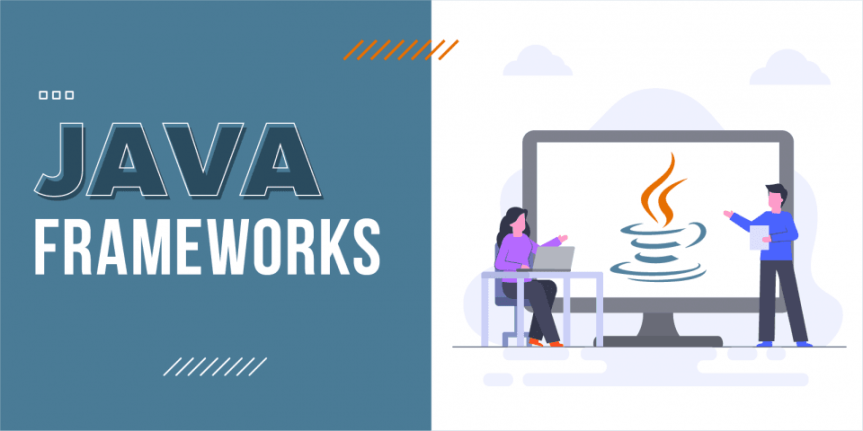Java is the third most popular programming language in the world. Thanks to its vast ecosystem and millions of Java developers contributing to the entire Java community, it has grown into an independent platform that follows an object-oriented programming paradigm and is easy to understand, write, and debug. Also, the developers need not write the Java programs from scratch.
There are various Java frameworks that help write web and mobile applications, microservices, and REST APIs to run on the Java Virtual Machine. You can either hire Java developers to help you assist with the best framework for your upcoming project, or seek consultation from top-notch Java development companies.
In this blog, we have curated a list of top Java frameworks, famously used in web development:
Spring
The Spring framework is one of the most flexible Java frameworks used to ease down the complexity developed during the development of enterprise-level applications. Released in 2004, Spring has gained so much popularity among the developer’s community that they address Spring as the “framework of frameworks”. Spring framework is loosely coupled, lightweight, open-source, and often referred to as the inversion of the control containers for the Java platform. The extensions developed in this framework allow developers to develop Web Applications on top of the Java Enterprise Edition platform. Some of the giant global marketers using the Spring framework are Amazon, eBay, Netflix, and more.
Hibernate
Hibernate is another object-relational mapping tool for the Java programming language. It helps map an object-oriented domain model to a relational database and works wonders to achieve the desired outcome. The hibernate.cfg.xml contains the entire information about mapping Java classes with database configuration. It helps in the development of persistent classes and establishes communication of the user with any database easily. Additionally, the Hibernate framework makes it easy to perform the database operation on the Java entities.
Play
Play framework is also a popular open-source web application framework. It follows the MVC architectural pattern and is usable by other programming languages too, when compiled to JVM bytecode, for instance, Java.
The Play has a lot of similarities to the Django, Ruby on Rails, and ASP.NET architecture. However, this framework not always follows the J2EE web standard rather it intends to remove the issues of the traditional Java web development. Built on the Akka Toolkit, the Play framework truncates the creation of the concurrent and distributed applications on the JVM (Java Virtual Machine).
Apache Struts
It is another Java framework that is free, open-source, and based on the MVC architectural pattern. Apache Struts work wonders when you need to create a unique and modern Java application pattern. The conventions are favored over configuration and it becomes extensible using a plugin architecture. Also, there are various other plugins to support REST, AJAX, and JSON and extend the Java Servlet API.
Companies like Infosys, Accenture, and NextGen Technologies use this framework as it offers a centralized configuration, which means rather than coding information, Struts values are represented in XML or property files.
Google Web Toolkit (GWT)
As the name suggests, Google Web Toolkit has been developed by Google to create elegant internet Java applications. The GWT framework help convert Java code into JavaScript code, that too custom code based on the web browser used by the developers. Google applications like AdSense, Google Wallet, and Blogger were developed using the GWT framework.
Summary
There are many other Java frameworks like JSF, Vaadin, Blade, Grails, and more that help developers develop unique and visually appealing web and mobile applications. If you are looking for further assistance on the best-suited framework, connect with one of the best Java development companies like ours.
Our team will be happy to help and guide you with your web development projects and expectations.

